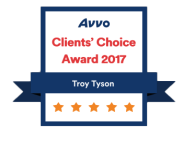Introduction
Ideally, children should be able to grow up in a loving home, under the watchful eyes of both of their parents. Sadly, however, this is often not the case. There are many situations in which innocent children are abused, abandoned, or otherwise mistreated by those charged with taking care of them. In other situations, a child’s parents or caretakers pass away or otherwise become incapacitated. All of these scenarios give rise to the possible need for a guardian to be appointed for the child. If you are interested in becoming a child’s guardian, this article will walk you through the process.
Temporary or Permanent?
Guardianships in Indiana are largely governed by Indiana Code 29-3-5, which outlines the procedures and requirements for becoming a guardian. The first thing you will need to decide is what type of guardianship you want. Indiana offers both temporary and permanent guardianships. Under a temporary guardianship, a court will allow an adult to have guardianship of a child on a short-term basis, usually ninety days. These are best suited to situations in which there is some hope of positive change or improvement. For instance, a child’s mother may be going through a rough patch, but may expect to be back on her feet in a few months. A situation such as this might be appropriately addressed with a temporary guardianship. Permanent guardianships, on the other hand, will typically last until the child turns 18, unless circumstances warrant a change in the situation. These are better-suited to more long-lasting or permanent situations, such as when a mother dies, or a father is sent to prison for more than twenty years. If you are considering a permanent guardianship, you should weigh this option carefully, as it is a long-term investment in a young person’s life. While permanent guardianships can be overturned in certain circumstances, courts, understandably, are hesitant to undo them.
Filing Your Petition
Once you have decided which type of guardianship you want, you will then need to file a guardianship petition in the proper court (typically the court’s probate division). Calling the clerk of the relevant court, or looking up your court’s local rules, will allow you to obtain the specific procedures required in your jurisdiction. Typically, however, a court will have standard petitions available for you to fill in. If you are working with an attorney, they will likely prepare an extended petition for you, based on their own formatting preferences. You will also want to include with the petition, as separate exhibits, any supporting information which you feel will be helpful to your cause. Filing fees vary by jurisdiction, but in Indiana at the time of this writing, the cost of a guardianship filing is $176.00. Finally, you must be sure to serve all relevant parties a copy of the petition, and properly notify them of any upcoming hearings scheduled by the court. Relevant parties will include the child’s parents, as well as any current guardians. Again, your local court clerk can explain this process for you, and walk you through it.
Attending the Hearing
After your petition is accepted by the court, a hearing will be set. At the hearing, you will be able to give testimony and present evidence showing the court why you believe you should be appointed as the child’s guardian. The child’s closest relatives and other interested individuals will also be able to make their own cases as to why they should be given custody of the child, or why you should not. At the hearing, you should be prepared to give clear, concise testimony detailing your relationship to the child, your experiences with him or her, and your track record of caring for the child. You will also want to provide the court with any relevant evidence of your involvement and competence, such as receipts for purchases you have made for the child, documentation of doctor’s visits, educational reports, and letters of recommendation from people who support you and have knowledge of your experience with the child.
Additionally, it may be necessary to show the court evidence of why other parties are not in a position to care for the child. This could include negative documentation from child service agencies, evidence showing that parents or other caretakers are involved in criminality, evidence pointing to a lack of stability or employment on the part of the caretakers, substantiated reports of abuse, neglect, or drug use, etc. Remember that when you go to court, the presiding judge will have only a scant overview of your situation, and he or she will not know all of the details or history of your case. It will be your job to give a powerful presentation to the judge that will persuade him or her to rule in your favor. This is accomplished through thorough preparation ahead of the hearing, and by having strong testimony and items of evidence to put on the court record.
Once the hearing has concluded, the judge will either issue an order immediately, or take the information presented under advisement and issue an order in several days or weeks. If the judge rules in your favor, you will then receive a copy of the court’s order, as well as letters of guardianship outlining your responsibilities and rights as the child’s new guardian.
Conclusion
Although we all wish that children everywhere could grow up in safe, clean, loving homes with parents who care about them, that is simply not the reality for many children. The desire to rescue a child from a situation of lack, abuse, or danger is a very noble sentiment, and obtaining a temporary or permanent guardianship is an effective way to accomplish that objective. By submitting a detailed petition, giving powerful testimony, and presenting persuasive evidence, you will put yourself in a good position to have success in seeking a guardianship. Remember, however, to always follow the relevant state laws, as well as any local court procedures. Also, strongly consider seeking the advice of an experienced, qualified probate attorney in your area.
NOTE
All legal references are made with respect to Indiana law. Please check the laws of your local jurisdiction if you live in another state.
The articles in this blog are for informational purposes only. No attorney-client relationship is established through the publication of these articles.







